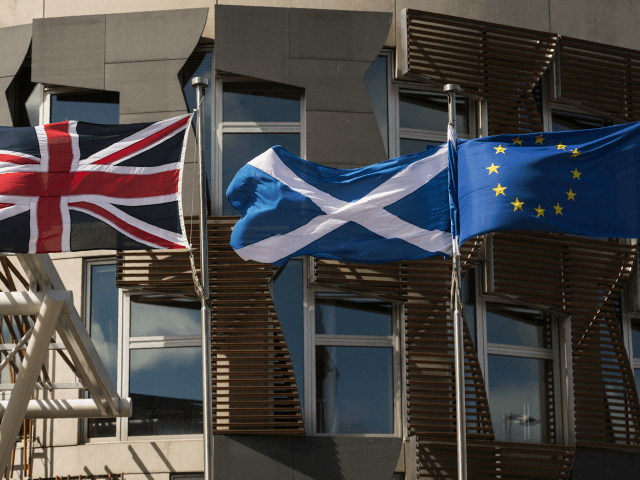(Reuters) – Scotland will not hold another vote on independence in the next five years because there is no sign it can be won, but the risk of secession from the United Kingdom is growing, a former Scottish first minister predicts.
Henry McLeish said Scotland’s future would depend on the deal struck by British Prime Minister Theresa May in divorce talks with the European Union and its impact on the overwhelming majority of Scots who had wanted to remain in the bloc.
That carried more weight than any fresh independence offer from the Scottish National Party (SNP) which runs the country’s devolved government, he said.
“The (Conservatives) are playing Russian roulette with Scotland and its role within the UK,” McLeish, a Labour Party first minister from 2000 to 2001, told Reuters in an interview.
“The grave danger is not of another (Scottish) referendum in the short term, but that (May) continues to alienate Scots who are not born-again nationalists or even traditional nationalists, but are the people who the SNP is now trying to reach out to win 60-40 or even 65-35 in another referendum.”
Scots rejected independence by a 10 point margin in 2014. But while Britain as a whole voted to leave the European Union in June, Scots backed remaining in the bloc by 62 to 38.
Scotland’s First Minister Nicola Sturgeon has pledged to honour their vote by whatever means necessary, including via a possible new referendum on independence although she has also named a “Brexit” minister, Michael Russell, to ensure Scotland’s voice is heard during negotiations.
Broadly speaking, polls show increased support for independence since 2014, but not enough to win.
“There won’t be another referendum in the next five years because Nicola won’t win,” McLeish said.
McLeish, a professional soccer player before becoming a politician, dismissed an SNP campaign launched last week to survey Scots’ desire for independence as a “delaying” ruse to win the SNP time while Britain’s new trading and political partnerships are worked out, a process that he calculates could take at least five years.
Scotland seceding from the United Kingdom would end a three-centuries-old union.
Sturgeon has indicated that maintaining EU single market access for Scottish goods and services is a red line for Scotland. On Wednesday she said that May did not have a mandate to take the United Kingdom out of the single market.
McLeish said that gave his own Labour party, currently suffering internal disarray, an “open goal” to develop a federal or home-rule alternative for Scotland, in which power is shared with the national government in London.
However, with the Labour split between members who supported leader Jeremy Corbyn and senior party lawmakers who did not, it meant the party had “yet to come out onto the pitch”, he said.
“(Nevertheless) it will be the Labour party who decides whether we stay in the UK or become independent because the Labour party vote is still sizeable,” he said.

COMMENTS
Please let us know if you're having issues with commenting.